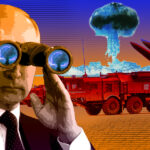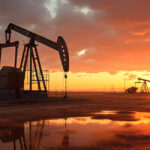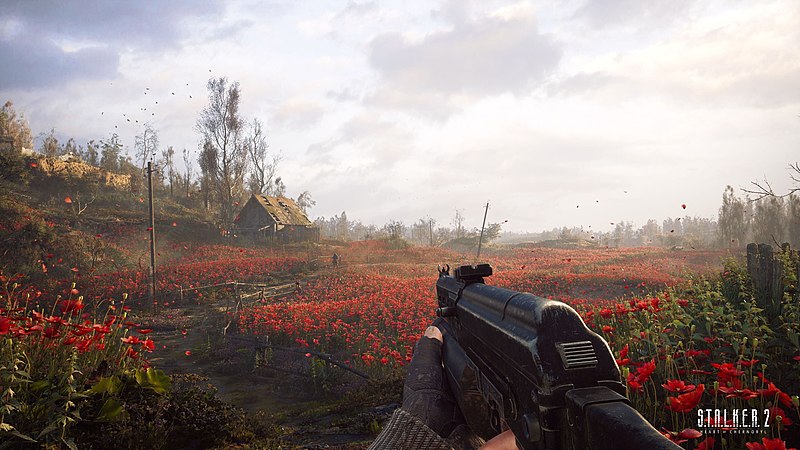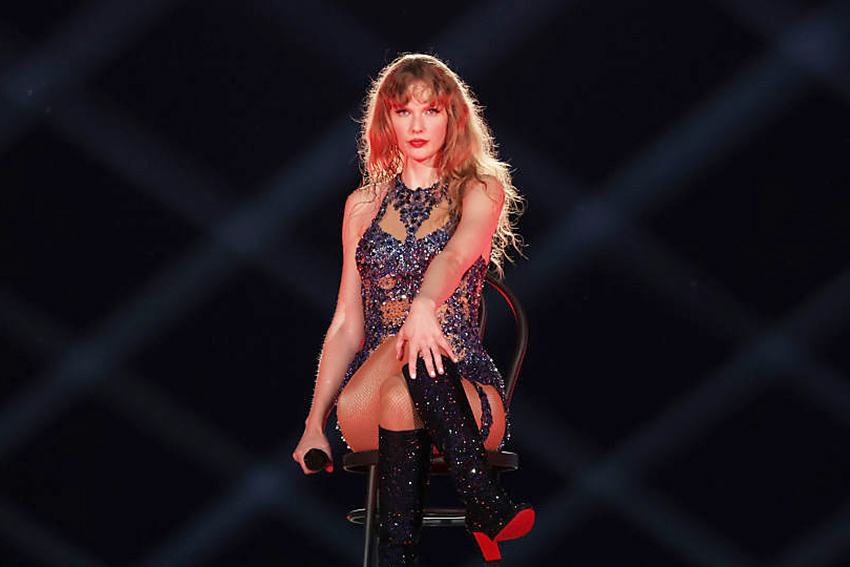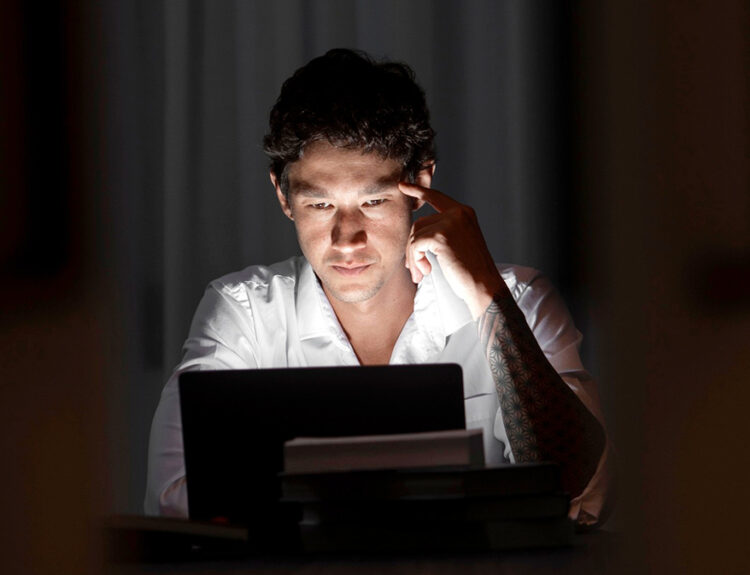When the famous British actor, comedian and writer Stephen Fry visited Kyiv last September and spent what he described as an unforgettable few days here, he returned home not only with new impressions. He also came back with footage for a documentary. And now the 45-minute film, titled Stephen Fry into Ukraine, is available on YouTube. Oleksiy Rosovetsky tells us how the legendary actor saw Ukraine.
Despite the fact that the British celebrity has been suffering from bipolar disorder and depression for many years (as he openly revealed in another documentary), Stephen Fry enjoyed life in Kyiv. For example, he enjoyed a drink in a popular Kyiv pub, paid tribute to the chicken Kyiv, and attended a performance by fellow comedians at the Underground Stand-up. They say he liked it, and the famous comedian even performed in front of the audience that evening.
However, Stephen Fry came to Kyiv not for entertainment, but at the personal invitation of the First Lady of Ukraine, Olena Zelenska, to moderate the Third Summit of First Ladies and Gentlemen in Kyiv, the topic of which was mental health during the war. In fact, the film begins with Fry entering Ukraine by train from the Polish city of Przemysl. He explains that rail is the only way to get to Kyiv, praises his sleeping compartment, the quality of the food on the train, and is surprised that the railway is running smoothly in a country at war.
He Appreciated Odesa’s Humour
Straight from the station, Fry goes to a Kyiv hospital to talk to Ukrainian soldiers who have suffered limb injuries at the front – they are being operated on by trauma surgeon Oksana Myronenko, whose story is known throughout the country. A refugee from Luhansk, Myronenko lost her home for the second time in Bucha, where her mother was killed by Russian soldiers at the beginning of the full-scale invasion.
“Can you forgive the Russians after that?” – Stephen Fry asks her a rhetorical question.
Not forgetting the main topic of his visit, he asks a soldier on a prosthetic leg about his psychological rehabilitation after being wounded. The young soldier, a native of Odesa, explains with the cynical humour typical of the inhabitants of this port city that he did not lose his leg in the war, but simply exchanged it for social benefits such as free parking. Who would have thought that black humour is not unique to the British? Usually dispassionate on camera, the comedian can’t help but laugh and later admits that he was impressed by the courage and optimism of the Ukrainian military.
A Film Star Under Bombs
But the strongest impression on the comedian was made when he was in the hotel’s bomb shelter during the air raid. It’s 4:45 in the morning, Russian missiles are falling on Kyiv, and even despite his innate British restraint, Fry’s face shows that he is really worried about what is happening. Perhaps he remembered Olena Zelenska’s words during the meeting the day before – that we all live with the understanding that we can die at any moment. (This feeling is familiar even to Kyiv residents, whose city is more or less reliably protected by air defence, so what can we say about residents of frontline cities).
Fry shows an app for his phone that notifies him of an air raid. He regrets that he did not bring his laptop with him to the shelter to avoid wasting time – the rest of the bomb shelter residents are habitually working on their computers, reading books, and scrolling through Instagram.
Another dramatic moment in the film is when the actor visits the Holocaust memorial in Babyn Yar, the site of one of the largest mass shootings of Jews in German-occupied territory in September 1941. Stephen Fry, who has Jewish roots on his mother’s side (many of his Hungarian relatives perished in the Holocaust), cannot contain the dread when he describes to the audience the scenes of the massacre that took place in these ravines more than 80 years ago.
Military Kyiv Lives an Ordinary Life
The second part of the film captures the official part of Stephen Fry’s visit, including his meeting with Ukrainian President Volodymyr Zelenskyy and the First Lady at the Summit. But much more interesting were Fry’s conversations with soldiers from the Azov Brigade and widows of fallen soldiers, with doctors, a fellow comedian and artist (poster artist Nikita Titov even presented his portrait to the British guest), and with ordinary Kyiv residents.
In the film, we see beautiful, educated and intelligent people for whom the Great War became a watershed that divided their lives into “before” and “after”. The war has left them without their favourite business, health, property, and loved ones. But none of the Ukrainians seems to be thinking of retreating and surrendering.
In between meetings, Fry wanders the streets of Kyiv. He expected to see frightened people in the capital of a country at war, with soldiers patrolling the intersections. Instead, he saw smiling, open-minded people on Khreshchatyk (although the Briton could hardly pronounce the name of Kyiv’s main street, which was unusual for him), calm citizens relaxing in cafes with the best coffee in Europe, as Fry himself admitted, street musicians, flower sellers, and young people on scooters. Later, Fry would write on his Instagram how impressed he was that even in times of war, Ukrainians preserve their traditions, culture and dignity. After all, Mr Fry can rest easy here: Kyivans seem to be doing really well with their mental health.
What is Stephen Fry Known For?
In Britain, this comedy actor, writer, screenwriter, TV presenter, director and part-time director of Norwich City Football Club is considered to be the bearer of the standard British spirit and impeccable English. He is the star of the TV series Blackadder and Jeeves and Wooster, and is also known for his role as Oscar Wilde in the film Wilde. Fry has an extensive filmography, having starred in such popular films and TV series as V for Vendetta, Doctor Who, Alice in Wonderland, Thunderball, The Sandman and many others. He is the author of the popular books Making History, The Liar and The Hippopotamus.
Source: The Gaze



